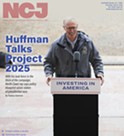Flash Fiction 2017
[
{
"name": "Top Stories Video Pair",
"insertPoint": "7",
"component": "17087298",
"parentWrapperClass": "fdn-ads-inline-content-block",
"requiredCountToDisplay": "1"
}
]
Judging the Flash Fiction Contest is a binge in small bites — a tasting menu from a multitude of cuisines. In the course of reading 134 submitted 99-word stories and vignettes, we whipped between murders and love stories (or both), the supernatural and the animal kingdom. We sampled humor, heartbreak, political allegory and some downright weird shit. Once again, we were most ably assisted by Booklegger owners Nancy Short and Jennifer McFadden, College of the Redwoods English professor David Holper and retired children's librarian JoAnn Bauer. Read on and see what moved them and us, and see what moves you.
— Jennifer Fumiko Cahill
Overall Winner Chosen by NCJ
The Magician
By Sarah Godlin
"Oh wow."
We passed a man standing under a Streetlight in McKinleyville.
"Who was that?" my daughter asked.
"An old friend who owned a convenience store. He was a magician."
"What? Why wouldn't I know him?"
I thought of my brother who she doesn't know because, like my magician, he dropped out of my life and his own too, and maybe I was too tired to explain in a good enough way how things sometimes go.
"He just kind of disappeared a while ago."
And her already genetically large eyes widened even further.
"And he just re-appeared there?"
In 99 words we've got two stories, a little familial heartbreak, a little humor and something true about parenting. Like a good magic trick, it reeled us in without being too sentimental and surprised without making us feel duped. — NCJ
The Tale of the Tailgating Yaris
By Patsy Hoffman Rhoades
Crash!
If brevity is the soul of wit — this one had to win hands down! It was so unexpected and arresting. — JoAnn Bauer
Ars Longa, Vita Brevis
By Peter Mehren
The elevator from his floor to the lobby, non-stop, took me about 30 seconds. As Galileo proved, any object, whether a pen or a full-grown adult male, if it falls, jumps or is pushed, takes about seven seconds to reach the ground from the penthouse floor, a bit longer if the arms are desperately flapping.
I'd always wanted the small, portable Inuit carving I'd given to him years ago, but he'd called it "priceless." Would he have reconsidered?
The economy with which this dramatic story is told is what drew me to it. The tone captures a killler's cold logic and oddly thoughtful reconsidering. Artfully done. — Nancy Short
This little gem manages to feel like it is taking its time despite the necessary brevity. There's tension in the elevator and the counted seconds that builds to a carefully constructed shock. — Jennifer McFadden
First Class Meal
By Colin Trujillo
I made a fire with the wood paneling from the first-class cabin.
Slicing a strip of meat off the bone, I carefully threaded it through a piece of wire I pulled from the wreckage.
We watched as the fat sizzled and dripped off the meat onto the flames.
The ones who tried to hike out couldn't have made it, help would have arrived by now.
Nine days living off peanuts and melted snow.
We sat trying not to think about the other passengers as we ate.
No one said the word but it hung in the air unspoken.
In a way, we cannot help but know what's for dinner, but this piece marvelously holds off that news, eliminating all other possibilities, as we listen to fat sizzle and drip. — David Holper
Semper Fi
By André P. Cramblit
Graduating in 1955, she left the Karuk world she grew up in to join the Marines. She said goodbye to her family and the river and headed to Paris Island and Boot Camp.
She landed in Atlanta and was introduced to Mr. Jim Crow. As a young Indian woman, she did not know if the world considered her black or white.
It was the first time she had seen separate drinking fountains for Blacks and Whites. Thinking "I'm not black" she drank from the white fountain.
She sat in the middle of the bus taking her to South Carolina.
We loved this simply stated story of a young Native woman going out among strangers during segregation, uncertain of the rules but negotiating her own precarious position. — NCJ
The Story Went to Pot
By Peter Mehren
The editor called me into his office and held up my story. I'd been assigned to write about the previous night's fire in a local "medicinal" marijuana shop.
"I'm surprised and just a little disappointed."
I said nothing, almost always the best response to anything, especially criticism.
"You didn't use the word 'conflagration.' and you didn't indicate that the firefighters got all mellow. You didn't use any of the druggie double entendres I expected. Why do you think I gave you the assignment?"
"I'm sorry, sir. But I like to give the readers something to do for themselves."
I found this very witty and, certainly, of local interest. The last line could be the credo for flash fiction — always leaving the reader's imagination to fill out the story. — JoAnn Bauer
Our Secret
By Rod Kausen
My childhood life changed when a car with a drooping passenger crept down our gravel driveway to his new apartment above a storage garage. I was afraid of him but compelled to spy due to his distorted physical features and strange mannerisms.
My mother initially stressed "never tease him because he doesn't know he's retarded and he's known to get violent." I worried that I, too, might be retarded and everyone knew it but me.
We became friends.
I was spying from our rooftop that foggy evening his teenage tormenter disappeared forever from our rural town.
The fulcrum of this story for me is "we became friends." A stranger engenders fear of the other and its common twin: fear of one's own flaws. Then: identification and alliance, even in the face of horror. — Nancy Short
Our narrator is a spy, an observer. We imagine them on the outside, not part of the social mix. The new friendship comes as a surprise and the last line is full of understated menace. — Jennifer McFadden
Different Fathers
By Peter Mehren
"Come out to the kitchen," Francesca ordered Alfonso.
Once there, she hissed at him, "You stop it! He's Angela's boyfriend. You stop being rude to him!"
"I don't like the way he looks at her, how close they're sitting."
"She's 22. She's a grown woman."
"But I'm her father. I gotta protect her."
"She wouldn't be here at all if my father'd protected me that way."
He started to speak, but she put a finger on his chest. "Hmm? Would she? Now go back in there and be nice, like my father had to learn to do with you."
Such a nice irony here packed into this vignette: the father who is being rude to his daughter's date, and the wife who drags him into the kitchen, only to remind him of her father's own hard lesson in this department of parenting. — David Holper
Girl at Night
By Zia Schatz
At 12 I'm alone with night sounds. Goats rubbing the fence, the radio, toast popping up. Suddenly I hear my chickens screaming. Bloody mink in my flashlight beam. The cavern of what to do opens. I yell, she bares her teeth. I stomp, she continues killing, smiles and dodges. I make chaos until she leaves. Half are dead. I go to bed exhausted. The next night she returns so I show her the pellet gun, which I do not know how to load. Surely if I am terrified of this weapon she will be, too. She kills them all.
The evocative imagery and the efficient action enliven this tale of fear and futility. It's straightforward and visceral in the narrator's panic, as she flails about in "the cavern of what to do." — NCJ
Symbiosis
By Jeanne Gale
Wound under her sternum and between her breasts, the worm awoke and headed north as she arose. Sensing the worm in her neck, she coughed. Into her brain, its thin winding body slithered behind her eyes and around her temples. It thickened. Pounding and tightness dulled her thoughts.
Rotely, to the worm's drums, she plodded. A teaspoon, black ground and fire. Then, through her lips, hot and black it ran toward the worm. They smiled, the woman and the worm. Until tomorrow?
I'm not sure what exactly the author was describing (I pictured a drug habit) but I found the imagery vivid and insidious. Finding joy, or at least release, in filling a terrible need that will ultimately destroy you. — JoAnn Bauer
How it Came About
By Peter Mehren
Will Shagsbeer and David Geldschmidt frustrated and delighted their Stratford schoolteacher, making jokes in English, Latin and their own combination of both languages, amusing each other, but also being the best memorizers in the teacher's memory.
Then in the Winter of '82, David bet Will that he could swim across the Avon under the ice, but he couldn't.
Will went into depression. He quit school and gave up his plan to be a lawyer in partnership with the now deceased David.
Then Anne told Will he'd gotten her in trouble.
And then a troupe of actors came to town.
A tidy piece of historical fiction in which the end is just the beginning. That the handy arrival of a troupe of actors in a small town may have set in motion a world changing literary career ... that's how life is sometimes. — Nancy Short
The way this story playfully sets up Shakespeare as a student, briefly introduces some profound life events and leaves us with a last line that holds the moment before literary history was made is all in all very impressive. — Jennifer McFadden
Secret Lovers
By Doug Brunell
Lights out at 10:30. Clockwork. Window unlocked? Nearly always. By 1 a.m. she would be sound asleep, which meant it was time to sneak in. Walk softly. Don't wake her. He hears her breathing before he enters her room.
Sleeping beauty.
Dark hair splayed across her pillow and shining in the street light that filters through the second story window. He bends. Sniffs quietly. No noise. Cannot wake her.
Her hair smells divine. Like lilacs.
Straightens back up. Smiles.
If she wakes, he'll show her the ring he always carries "just in case." She'll say, "Yes."
Or else.
A great use of clipped sentences, building the suspense — and that great surprise just at the last in the twist of the either/or. — David Holper
Somewhere Else
By Grant Scott-Goforth
We stood there for three or four minutes, looking at those wriggling pink bodies in a mess of thumbtacks and matchbooks and paper. We'd pulled the drawer out and onto the porch 5 feet from and 15 feet above Corral Creek.
We knew what had to be done. Cabins are for people. Somewhere else is for mice. But we couldn't.
"Throw 'em in the creek."
"No, YOU!"
We didn't. We sure as shit couldn't stomp them.
Then, a round-eared angel appeared. We opened beers in relief and watched mom whisk them babies off, one-by-one.
This one is a drama in miniature with a moral quandary and a test of nerve. The happy ending was a genuine relief. And with the dialect, we didn't even recognize the voice of our former colleague and frequent freelancer. Feeling a little silly, honestly. — NCJ
Simplicity
By Hanalei Aralia
From the cabin window, she watched the approach of a lone rider, astride a barrel chested swaybacked old horse. She went outside to meet them, shading her eyes against the afternoon sun. In the distance, the ruins of the burned out city smoldered, a faraway chaos and misery. Taking a jar of preserves from the pantry shelf before slicing a loaf of freshly baked bread and setting two plates on the table, she wanted to ask what he'd seen on his long journey there, but knowing it would be sorrowful, instead spoke of pleasant things, like the coming spring.
I'm a sucker for the combination of western imagery and apocalyptic visions. I immediately pictured the scene as an episode of Westworld that I would definitely want to watch. — JoAnn Bauer
The Subway's His Office
By Peter Mehren
Every morning as I subwayed to work, he'd pause and I'd hand him a dollar. And in the evening, with no eye contact, I handed him another dollar.
People sometimes asked me why I did it, saying, "It encourages him."
Nodding, I said, "All the religions say be charitable."
If they said that he looked healthy enough to get a job, I replied, still softly and anonymously, "This is his job. The train's his office."
One day he didn't appear, and I worried, which made me wonder if, when I took my annual fortnight off, he worried about me.
Sometimes what a story says meshes perfectly with how it is said. In this case the author manages to convey a deeply gracious world view, and hint at the mutuality inherent in all truly human relationships, all without preaching or lecturing. Lovely. — Nancy Short
Gentle and philosophical, this story has a subtle arc and is a meditation on the importance of human connection. — Jennifer McFadden
Sweet Dreams are Made of This
By Pat Lacasse
"Wake up, Pete! Wake up." She kept poking him in the shoulder until he stirred. He didn't turn to face her and she could barely hear him as he grumbled at her from the far side of the bed.
"Wha ... wassa matter?"
"My dream. I dreamed I killed you."
"Nice goin', Bets. How'd ya do it?"
"I shot you in the head.
"Great. A quick merciful death. Now lemme sleep in peace. OK?"
She lay there, staring at his back for a while, then closed her eyes, smiling as she went back to her lovely dream.
This late-night moment has a nice edge in Pete's indifference to his lover's dream — and that lovely smile as afterglow. — David Holper
Dammed
By Hanalei Aralia
She looked out over the calm water, absolutely still and without a ripple. It'd been a decade since she'd last visited, twice that long since she'd left her childhood home. She could see it in her minds' eye, the beloved old tree in front, the vegetable garden behind. It was all lost now, gone beneath the water. Everyone in town fought the flooding, but the government won out in the end, as it always does. Filled with a deep nostalgia, she watched the sun sink behind familiar outline of the western ridges, the only thing that remained the same.
There's something haunting about towns that are buried underwater. I found it very easy to share the feelings of this woman as she visited her lost hometown and it raises larger issues of individual losses vs. perceived progress for the common good. — JoAnn Bauer
Right for Each Other
By Peter Mehren
His friends and her friends decided he and she should meet, and so a large dinner was planned: sitting mandated mingling, whereas a cocktail party allowed for retreat, from conversation, from room.
Each hid the shock as they were introduced. No one knew that they'd been married, and lost a baby, and broke up because of that; nor that she'd resumed her maiden name; nor that jobs had coincidentally brought them both to this city.
At evening's end, he wrote on a card. Others thought his phone number; but instead, "Sorry." And she wrote on her card, "Coffee someday?"
Poignant but unsentimental, this story of loss, grief and ultimately connection honors the gravity of its themes with unencumbered prose. — Nancy Short
There's a lot of heartache in this story, but it ends on a hopeful note. Maybe it was fate after all? — Jennifer McFadden
It's a lovely irony we're privy to the couple's real backstory — and so hear the hopelessness in the note he pens his former wife. — David Holper
Untitled
By Patty MacDonald
Recently I schlepped across town to Borders to hear Bigfoot read from his memoir. I know, shocking. I wasn't too surprised. I mean, Paris Hilton wrote one. When Bigfoot entered, a gasp swept through the crowd. He was a shell his former self seen on YouTube racing across a hillside. He dug around in a small marsupial pocket to retrieve his glasses, and I noticed his hands shook uncontrollably. After reading aloud a passage about his struggle with Parkinson's, a woman sitting beside me whispered "sad is so overdone." I kicked her ankle, and let out a loud "shush."
The setup of the notoriously shy Bigfoot doing a book tour charmed us, as did his imagined life and cynical audience. But really, it had us at marsupial pocket. — NCJ
Latest in News
Readers also liked…
-
Through Mark Larson's Lens
A local photographer's favorite images of 2022 in Humboldt
- Jan 5, 2023
-
'To Celebrate Our Sovereignty'
Yurok Tribe to host gathering honoring 'ultimate river warrior' on the anniversary of the U.S. Supreme Court ruling that changed everything
- Jun 8, 2023




































